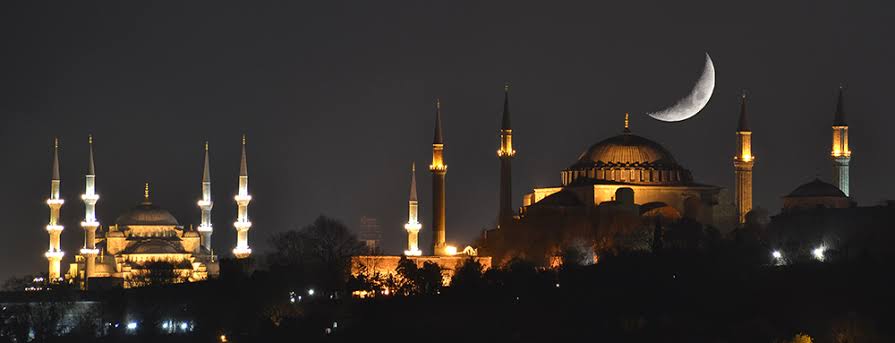Ramadan approaches in 2025, Muslims around the world are preparing for a time of fasting, reflection, and spiritual growth. This sacred period is observed annually, with the start and end dates shifting slightly each year due to the lunar Islamic calendar. Understanding Ramadan timings, including the start and end of daily fasting periods, is crucial for ensuring that the fasts are observed correctly, and for creating a sense of unity within communities.
Ramadan 2025 is expected to begin on the evening of Sunday, March 2, and end on the evening of Monday, March 31, marking a month of devotion, prayers, and self-discipline. The timings of suhoor (pre-dawn meal) and iftar (meal to break the fast) vary depending on geographical location, but they all follow the same principle: fasting from dawn until sunset.
The Importance of Ramadan Timings

For Muslims, Ramadan is a deeply spiritual month where the soul is purified, and personal discipline is tested. The fast, observed from dawn to sunset, is more than just abstaining from food and drink; it is a time for personal reflection, charity, and drawing closer to Allah. Knowing the precise timings for suhoor and iftar helps worshippers maintain their fasting routine, ensuring they observe the fast properly.

In addition to the daily fasting routine, prayer times and the Taraweeh prayers (special prayers held during Ramadan nights) also follow specific timings. These prayers are integral to Ramadan, as they offer Muslims the opportunity to deepen their spiritual connection with Allah.
How Ramadan Timings Are Determined
Ramadan’s fasting schedule is governed by the position of the sun, with the fast beginning at dawn and ending at sunset. In 2025, suhoor, the pre-dawn meal, will end just before Fajr (dawn), and iftar, the meal to break the fast, will be at Maghrib (sunset).

Fajr marks the beginning of the fast, and it is the time when Muslims are required to stop eating or drinking. This prayer time happens before the first light of dawn. Sunset marks the end of the daily fast, and it is the time for iftar, a moment of joy and relief as worshippers break their fast with dates and water, following the Sunnah (tradition of the Prophet Muhammad).
While these timings are consistent globally, local variations depend on geographical location and time zone. Therefore, it’s essential for individuals to consult local prayer schedules or use prayer apps to ensure they follow the correct times in their area.
Variations in Ramadan Timings Around the World
The timings for Ramadan vary significantly depending on where you are in the world. In countries closer to the equator, like those in the Middle East and North Africa, the fasting period is relatively shorter. For instance, in cities like Cairo, Egypt, or Riyadh, Saudi Arabia, the fasting hours are typically around 12-14 hours.
However, in higher latitudes, such as in Northern Europe, the fasting hours can be considerably longer, sometimes stretching beyond 18 hours due to the extended daylight hours. This means that Muslims in these regions must adjust their suhoor and iftar times based on local conditions.
In places with very long or very short days, such as Alaska or Scandinavia, scholars have provided guidance on how to calculate fasting hours, often suggesting that Muslims in these areas should follow the timings of the nearest city with normal daylight hours or use the average sunrise and sunset times.
How to Prepare for Ramadan Timings
To ensure a smooth and spiritually enriching Ramadan, preparation is key. Here are a few tips for managing Ramadan timings effectively:
- Use Prayer Apps: With Ramadan 2025 approaching, various apps can help you track local prayer times and fasting schedules. These apps adjust prayer times based on your location and offer accurate times for suhoor and iftar.
- Plan Your Meals: Suhoor is an essential meal that prepares you for the day of fasting. Ensure that your suhoor is nutrient-dense, containing complex carbohydrates, healthy fats, and proteins to provide lasting energy throughout the day. Hydration is also critical, so consume enough water during suhoor.
- Organize Your Schedule: During Ramadan, many Muslims adjust their daily routines to accommodate the fasting and prayer schedule. Work and school hours may shift, or individuals may take time off to focus on religious observance. Planning ahead can ensure you stay productive while maintaining your spiritual focus.
- Volunteer and Donate: Ramadan is a time for charity. Many Muslims use the month to increase their acts of charity and volunteer for causes in their communities. Knowing when to perform acts of kindness or participate in charity events can make a significant difference to those in need.
The Spiritual Benefits of Ramadan Timings
Fasting during Ramadan is more than just an act of self-discipline; it offers a time for spiritual rejuvenation. Observing the precise timings of the fast allows Muslims to synchronize their daily routines with the rhythms of prayer and reflection. This synchronization fosters a sense of peace and mindfulness, grounding individuals in their faith.
Additionally, by following the correct timings for suhoor and iftar, Muslims are able to optimize the spiritual benefits of fasting. Suhoor, for example, is a moment to pray and reflect on the day ahead, while iftar offers an opportunity for gratitude and community.
One of the most powerful aspects of Ramadan is the collective experience of fasting, especially when shared with family and friends. Breaking the fast together at iftar creates a sense of unity and joy, strengthening bonds within communities.
Embracing Ramadan 2025
As Ramadan 2025 approaches, Muslims around the world will once again embark on a transformative spiritual journey. Whether you are fasting for the first time or observing it for many years, understanding the timing of this blessed month is essential to observing it fully.
From the early morning suhoor to the evening iftar, every moment of Ramadan offers an opportunity for personal growth, spiritual awakening, and connection to the global Muslim community. By preparing for the month ahead and following the correct prayer and fasting schedules, you can ensure a fulfilling and meaningful Ramadan experience.
May Ramadan 2025 bring peace, joy, and blessings to all who observe it.
Do follow UAE stories For more updates












